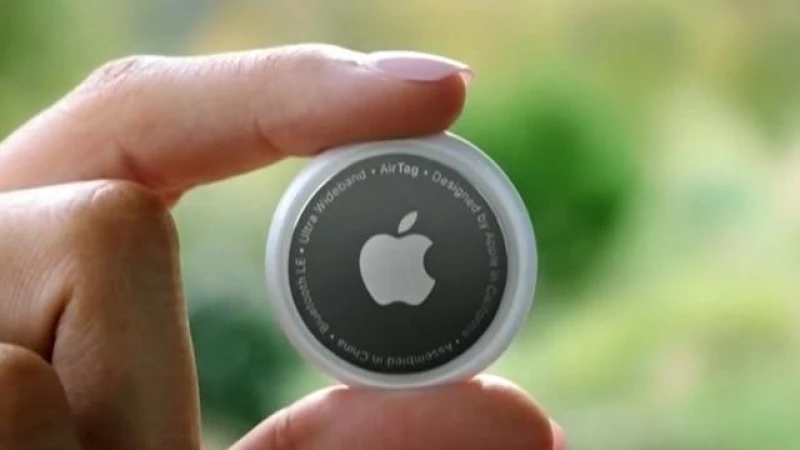A judge on Tuesday denied Apple's motion to dismiss a class-action lawsuit claiming that stalkers are using its AirTag devices to track victims and that the tech giant hasn't done enough to stop them.
Apple's $29 AirTags have become popular items since their 2021 release, helping users keep tabs on the location of anything from their lost keys to wallets and luggage. But the small bluetooth devices that owners attach to their key chains or keep in their bags and purses to locate their personal belongings, have been misused by stalkers who are tracking their targets' every move.
In December 2022, Apple was sued by dozens of plaintiffs who said they were stalked by AirTag users. They alleged that Apple failed to mitigate such dangers and should have done more to protect victims — claiming AirTags "revolutionized the scope, breadth, and ease of location-based stalking" and that current safety features are inadequate.
Apple attempted to dismiss the litigation in a filing last year, arguing the company "took proactive steps to try to deter misuse" and that it should not bear liability for injuries caused by third parties. But San Francisco-based U.S. District Judge Vince Chhabria dismissed that motion on Friday.
Chhabria's ruling allowed three of the class-action plaintiffs' claims to move forward for negligence and strict product liability under California law, despite most claims being deemed "inadequately pled." The remaining claims were dismissed in a separate order.
According to Chhabria, it is too early to determine if Apple was required to take further steps to prevent stalkers from using AirTags effectively under California law. The judge highlighted that more investigation is needed at this stage.
In the ruling, arguments from both Apple and the plaintiffs were outlined by Chhabria. The cases of victims being stalked through AirTags by former partners or others were detailed, leading to emotional and financial harm.
The cases highlighted "purported defects" of AirTags that hindered the victims' ability to understand the tracking and stop it promptly. These included issues with notifications, delayed alerts, and the inability to deactivate the devices remotely, which allegedly prolonged the stalking incidents.
Gillian L. Wade, the attorney representing the plaintiffs, expressed gratitude for the chance to continue the litigation. She emphasized the importance of addressing abusive location tracking and advocating for victims' rights, especially as such incidents become more prevalent.
Apple and attorneys representing the California-based company did not immediately respond to requests for comment Tuesday.
In February 2022, well before the class action filing, Apple issued a statement expressing strong condemnation for any malicious use of their products. The company also mentioned upcoming updates designed to enhance safety.
Additionally, Apple collaborated with Google last year to propose standards for combatting secret surveillance using AirTags and similar devices.
Since their launch in April 2021, experts have been aware of the vulnerabilities associated with these tags. Tech columnist Geoffrey Fowler from The Washington Post, who tested the tags upon release, described them as remarkably effective in tracking items and potentially aiding stalkers.
Fowler recounted an incident where a colleague placed an AirTag in his bag with permission and tracked him for a week, providing real-time updates on his whereabouts.
Reflecting on the implications of such technology, Fowler emphasized the need for further discussions on the matter.







